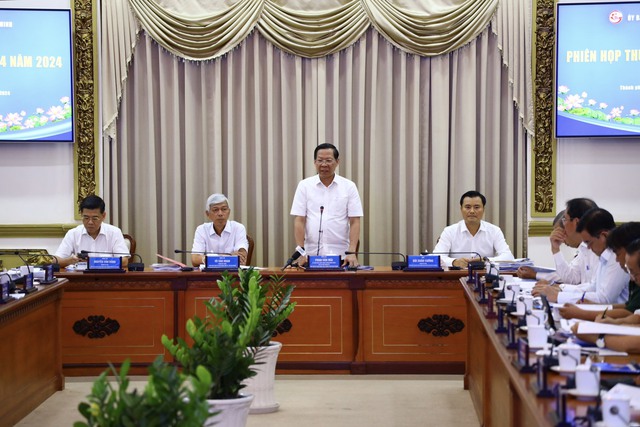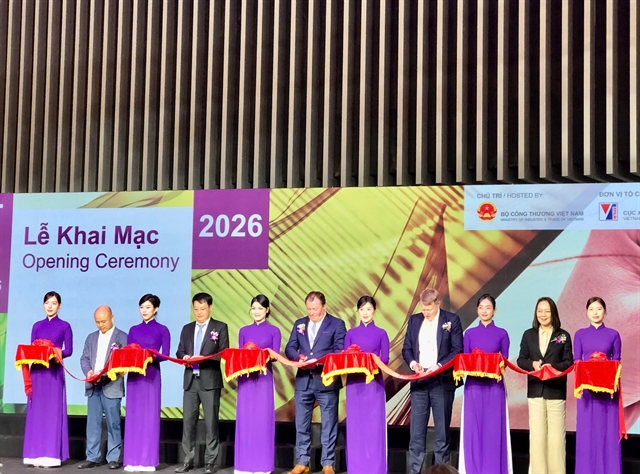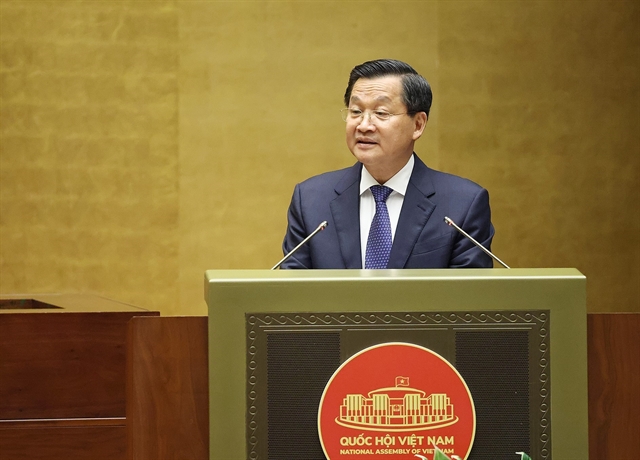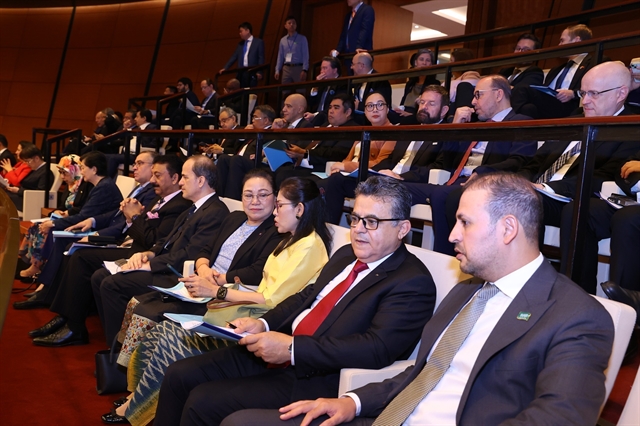 Society
Society

 |
| Deputy Prime Minister Lê Minh Khái reporting the results of implementing the socio-economic development plan and the State budget for 2023. VNA/VNS Photo |
HÀ NỘI — Deputy Prime Minister Lê Minh Khái said Monday that the focus of 2024 will be on perfecting institutional frameworks and policy mechanisms, revitalising growth drivers, and accelerating the disbursement of public investment funds to propel Việt Nam into the group of upper-middle-income countries.
He made this statement while presenting the supplemental report on implementing the socio-economic development plan and the State budget for 2023, as well as the situation in the first months of 2024, at the opening session of the 7th sitting of the 15th National Assembly (NA) on May 20.
Deputy PM Khái noted that the GDP growth rate in the last months of 2023 reached 5.05 per cent. Although lower than the target, it remained high compared to global and regional standards. Inflation was successfully controlled, with the average Consumer Price Index (CPI) increasing by 3.25 per cent.
As for the early months of 2024, the Deputy PM highlighted that GDP growth in the first quarter of this year reached 5.66 per cent, the highest since 2020. He said that this was a significant achievement amid a challenging economic environment.
The average CPI for the first four months increased by 3.93 per cent year-on-year. State budget revenue reached 43.1 per cent of the forecast, an increase of 10.1 per cent. Export turnover increased by 15 per cent and there was a trade surplus of US$8.4 billion. The economy maintained positive growth momentum across all three sectors.
Additionally, the Government continued to implement social welfare policies for those who contributed to the revolution and improved living standards for the people. Việt Nam's Human Development Index ranking had increased by eight places, to 107th out of 193 countries.
The cultural, sports, and tourism sectors were also acknowledged and promoted, and the Deputy PM also highlighted comprehensive diplomatic and international integration activities to maintain peaceful and stable diplomatic conditions.
Regarding existing limitations and challenges, Deputy PM Khái acknowledged that macro-economic management pressures remained high, particularly in controlling inflation and managing interest and exchange rates.
Credit growth was still low, and gold prices, both globally and domestically, were highly volatile. While economic growth achieved relatively good results, there were still many challenges. Business and production activities of enterprises and the public continued to encounter numerous difficulties, the Deputy PM added.
11 priority tasks
Deputy PM Khái outlined 11 priority tasks to be implemented in the near future.
These include promoting growth while ensuring macro-economic stability, controlling inflation, and maintaining major economic balance.
Additionally, there will be efforts to renew traditional growth drivers and foster new ones. The Government will continue to implement policies to exempt and reduce interest rates, delay and restructure debts and provide tax, fee and land rent relief for businesses.
The Government will also reform the process of drafting and issuing legal documents, focusing on resolving long-standing issues and obstacles. There will be a push to decentralise and delegate authority, simplify administrative procedures and effectively implement one-stop-shop mechanisms.
Accelerating the progress of major national and inter-regional transport infrastructure projects is another key task, particularly constructing 1,000 km of expressways by 2025, with an aim of having about 3,000 km eventually operational.
Another focus is on developing high-quality human resources linked to promoting research, development and application of science and technology. The Government will also decisively pursue comprehensive and fundamental reforms in education and training.
 |
| Foreign delegates participating in the opening session of the 7th sitting of the 15th National Assembly (NA) on Monday. VNA/VNS Photo |
Deputy PM Khái said a new wage policy would be implemented starting July 1, 2024, and the reorganisation of district- and commune-level administrative units for the 2023-2025 period would be completed by September 2024.
Also on the same day, the NA’s Economic Committee urged the Government to implement measures to control inflation, stabilise exchange rates and gold prices and prevent shocks that could affect people's lives and business activities.
In reviewing the socio-economic and State budget reports for 2023 and the first months of 2024, Chairman of the NA’s Economic Committee Vũ Hồng Thanh emphasised the need for better management of the gold market and the risks associated with the real estate market.
According to Thanh, the management of gold markets recently revealed many inadequacies, with significant volatility in gold prices and a large disparity between domestic and international gold prices putting pressure on the foreign exchange market and exchange rates. The pressure of maturing corporate bonds remains high, and the corporate bond market has not yet fully recovered.
Thanh noted the increasing preference for gold, which has not been adequately adjusted, potentially impacted macro-economic management and market stability.
In the real estate market, Thanh pointed out that difficulties persisted, especially in the regulations and procedures for developing social housing projects. The implementation of the VNĐ12 trillion social housing credit package had been slow and had not met expectations.
The committee urged the Government to study a post-audit mechanism and take strict measures against those who purchase social housing inappropriately. He also recommended a comprehensive inspection of social housing developments to identify and address obstacles, inadequacies and misconduct.
Other recommendations include that the Government continue to manage monetary policy proactively, flexibly, and effectively and address difficulties in accessing credit.
The NA's review body also urged the Government to persist in restructuring the credit institution system linked with handling bad debts for the 2021-2025 period, concentrate on resolving issues with weak banks and devise sustainable solutions to redirect capital flows back into production and business. — VNS




